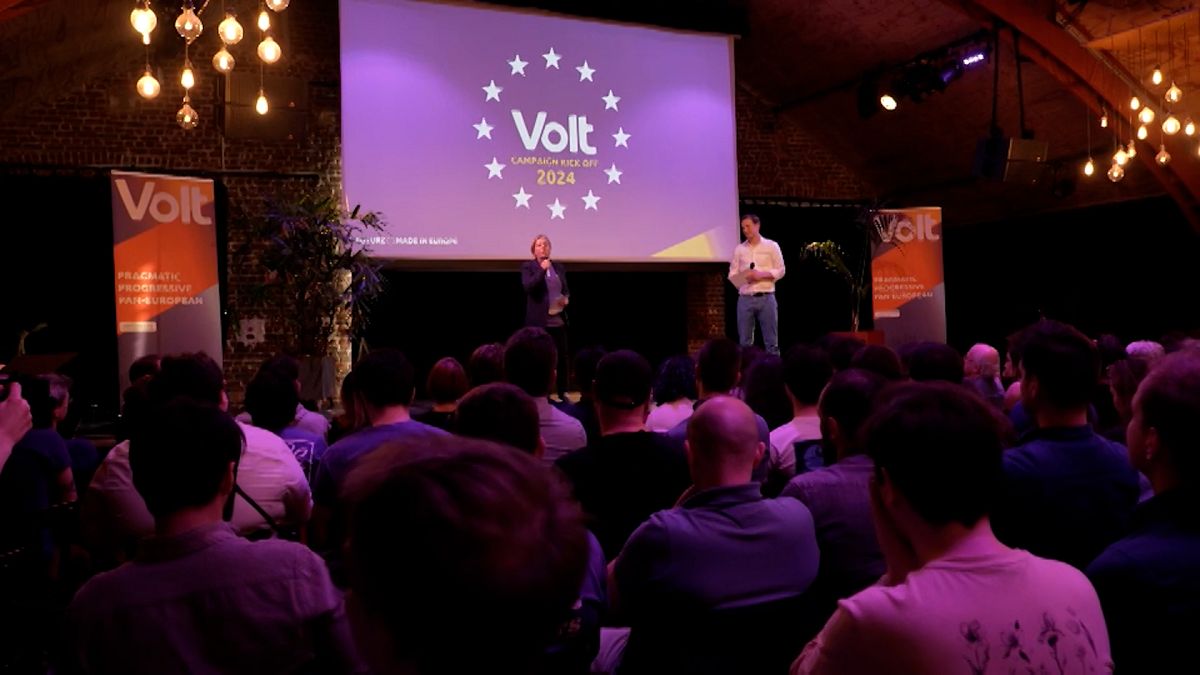In the EU elections, the citizens of the 27 member states will only choose candidates in their own country. Some parties would like to change this rule.
The Volt party, which presents itself with the same electoral programme in 16 different states, will compile a list with candidates from different countries. The main candidates will be two current MEPs, chosen by the party's members: Dutch Sophie In 'T Veld, who sit in the Renew Europe group, and German Damian Boeselager, already elected with Volt in 2019, who is part of the Greens/Free Alliance for Europe group.
On the ballot paper in each country, however, there will be different names.
A complicated idea
In 2022, the European Parliament had approved the establishment of a transnational college, with the election of 28 MEPs of different nationalities, based on the votes of all European citizens.
The mechanism envisioned two ballots for each voter: one for their national constituency and one, the same throughout Europe, for the transnational constituency. The European list would be divided into three sections.
In the first, the candidates from the most populous countries: Germany, France, Italy and Spain. In the second those from the medium-sized ones, such as Belgium, Greece or Sweden. In the third, the smaller ones, from Denmark down to the 514,000 inhabitants of Malta.
The lists would have been 'blocked', with candidates from the three different sections being elected alternately, so as to also guarantee representation for the less populous states, and to prevent candidates from larger states from monopolising the constituency.
Yet, the proposal was not taken up by the EU governments. The 15 extra MEPs who will be elected in 2024, when the Parliament will increase from the current 705 to 720 MEPs, will still come from national lists.
It will still be possible for any EU citizen to stand as a candidate in another country: Sophie in 't Veld herself, one of Volt's two leading candidates, will stand in Belgium, where she has lived for 20 years. Sandro Gozi, former undersecretary for European Affairs in the Renzi government, an Italian citizen elected in France in President Emmanuel Macron's Liste Renaissance, sits in the current Parliament.
Towards a transnational future?
The supporters of transnational lists, meanwhile, are not giving up. The liberal group Renew Europe and the European Green Party have included him in their election manifestos, as has Volt.
Many citizens would have been enthusiastic about the idea of voting for a transnational list, he tells Euronews. "But it was blocked by national politicians who were not enthusiastic about the possibility that citizens could actually choose between European candidates. I am sure it will happen in the future. If not in 2024, it will be by 2029."
Transnational lists are seen as a way to elevate the political debate at the European level and create a single electoral competition instead of 27 different ones. This is why they meet with opposition from nationalist and sovereigntist parties, as well as general scepticism from governments.
The dream of a European list, voted for by all Europeans, seems destined to remain so for now.
